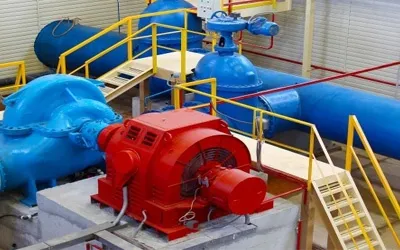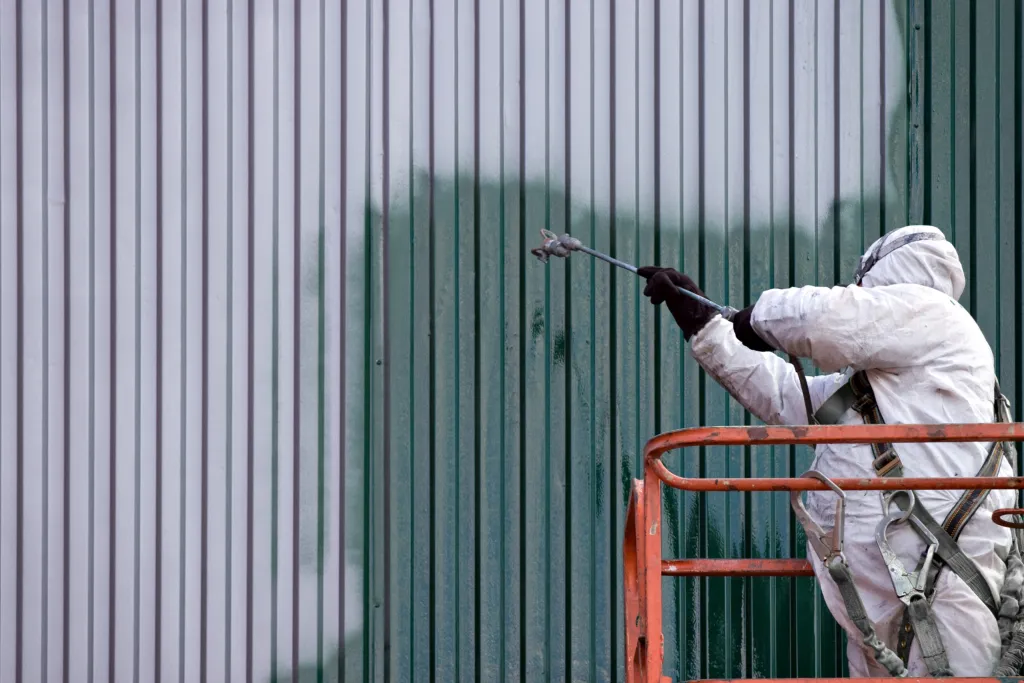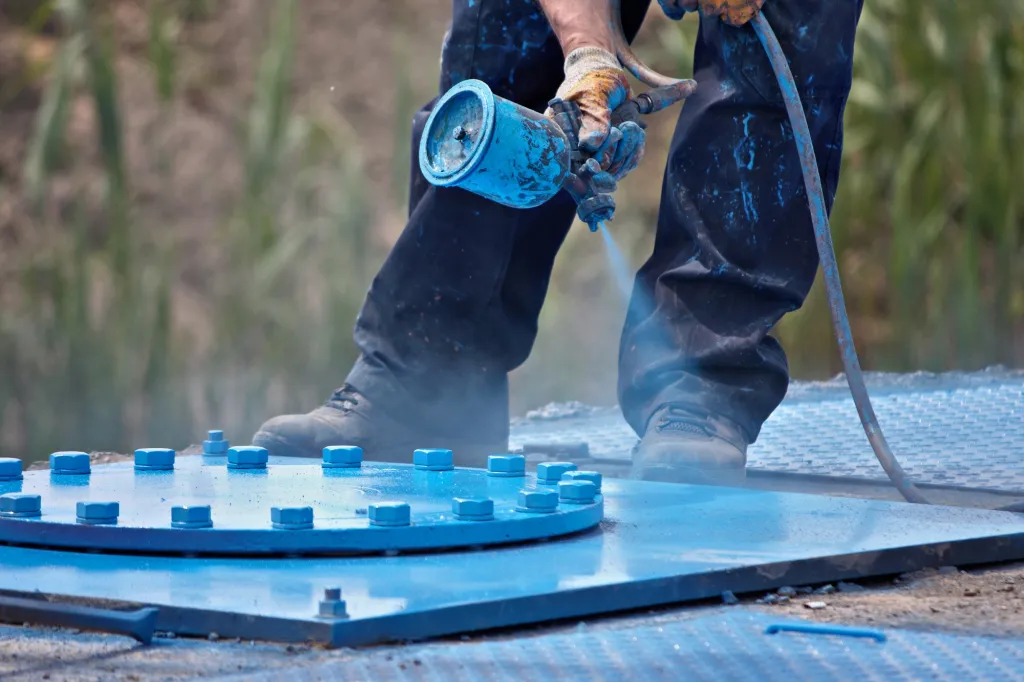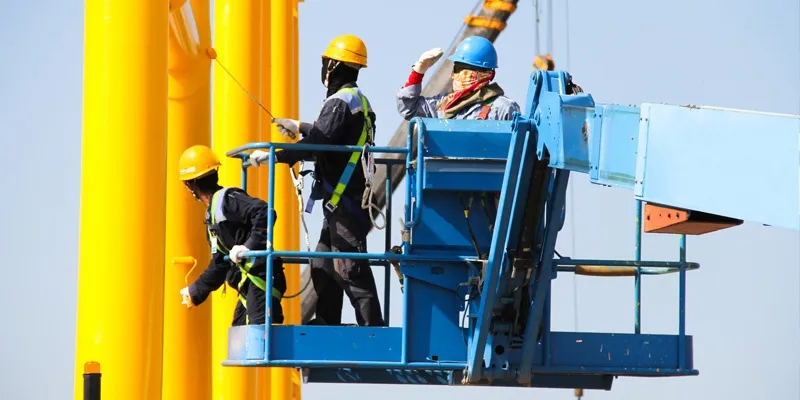
If you’re responsible for building maintenance, you’re aware that paint helps keep your building in good repair. However, you may not be aware of the additional benefits industrial coatings bring to your maintenance efforts.
It would be great if we could just apply paint to every surface and be done with it. However, when dealing with industrial painting jobs, it’s often smart to go a step further and apply an industrial coating to your flooring.
You may be wondering how to decide if you need to include an industrial coating when you get your property painted. What factors affect whether a coating is necessary? If you do need one, which coating is best?
That’s where consulting with a industrial painting contractor can help. Shepard Contractors has worked with businesses in the Tampa FL area for over 60 years. We’ve had plenty of experience using different paints and painting techniques. We’ve seen which paints and coatings work best with different construction materials. We understand how the different chemical and mechanical processes you use in your businesses can affect your building.
In working with so many different businesses, we’ve developed a good idea of what questions you might have about the industrial coating process. Let’s look at some answers:
What Are Industrial Coatings Used For?
In a typical paint job, commercial interior painters will apply primer. This is followed by the appropriate number of paint coats for the job. Primer helps paint adhere to your surfaces. It provides an initial layer of protection. The layers of paint provide some additional protection.
However, paint and primer can’t always stand up to everything thrown at them in an industrial environment. They also don’t provide any sort of safety benefits for your employees and equipment.
By adding an industrial coating layer over the paint, you can protect the substrate of your flooring. You’ll also improve the longevity of your paint job.
Industrial coatings help lessen the damage from corrosion and oxidation caused by the chemicals used in your business. They also provide an additional layer between the paint and whatever traffic passes over your flooring. This reduces wear and increases the amount of time between paint jobs. Some coatings have additional properties that help protect your workers from work-related injuries, pollutants or fire.
What Types of Industrial Coatings Are Available?
When choosing the type of industrial coating you need, it’s important to look at the different surface areas of your business. Think about the conditions specific to each one. Generally speaking, you can only put one coating per surface. It wouldn’t make much sense to put a waterproof coating on an area that gets no moisture. On the other hand, an area that often gets washed down would benefit from waterproofing.
Since you can apply different coats to different areas, it makes sense to match the coating to the needs of each individual environment within your overall business. A commercial paint contractor can help you determine what coatings work in which areas.
Some common options for industrial coating include:
Waterproofing. Most primers provide some waterproofing, but it may not be enough for your specific needs. Waterproof coatings and sealants work with primer to add even more water resistance. Waterproof coatings are made from a wide variety of different chemicals designed to work on whatever surface you may have. As we’ve worked with different businesses, we’ve waterproofed surfaces made from wood, metal and concrete. We’ve even waterproofed electronic devices.
Anti-Slip Coating. Concrete and epoxy are two of the most common industrial flooring materials. They both have a tendency to become slippery as they get worn down by foot traffic. They can also grow slick after certain floor treatments designed to reduce the floor’s porosity. Anti-slip coatings can improve worker safety by making the floor less slippery.
Electrostatic Painting. This coating works on grounded metal surfaces to provide an even coat of paint. Electrostatic paint is made up of paint particles that have been given a positive charge. The charge causes the paint to be attracted to the grounded metal surface. This helps the paint go on quickly and efficiently. It also provides a finished surface that’s visibly superior in terms of uniform coverage.
Intumescent Coatings. These coatings provide passive fire resistance by expanding when heated. This creates an insulator that slows the fire, making them particularly good coatings for building exit points.
Antimicrobial Floors. This coating is good for clean rooms, fabrication areas, and anywhere you need to reduce microbial growth. Antimicrobial floors also improve indoor air quality when used across substantial areas of floor.
How Much Do Industrial Coatings Cost?
Like many things in building maintenance and construction, pricing depends a lot on the specific needs of the job. The substrate material, the type of coating desired and the working conditions to do the job all affect the end price. Have a commercial painting contractor look at the specifics of your job and get a written estimate to ensure that you know exactly what you’ll be paying for.
How Long Does an Industrial Coating Project Take?
Again, there’s no one-size-fits-all answer. It depends on the size of the job, the materials used and the working conditions. A good commercial painting contractor will work with you to get the job done efficiently. They will try to minimize the disruption to your business as much as possible.
That said, you can assume that there may be a need to redirect traffic around the area being treated during the treatment. The area may need to be off-limits for up to three days after the coating has been applied to allow for “curing” time.
How Do You Maintain Industrial Coatings?
The good news is that most industrial coatings don’t require much upkeep beyond typical cleaning. As long as they are applied correctly from the start and given time to harden, they’re pretty much hassle-free.
That’s why it’s important to hire commercial interior painters with the experience to do the job right. The biggest problems we’ve seen when being called in to fix industrial coatings have come from one of two sources. In some cases, the coatings weren’t applied right. In others, the coatings were disturbed before they had time to cure. If you hire an experienced painter and follow the manufacturer’s instructions on letting the coating set, you’ll be happy with your investment. If you’re ready to find out how industrial coatings can benefit your business, contact Shepard Contractors today. We’ve served Tampa FL businesses with honest, accurate estimates and guaranteed work since 1949.
continue reading
Related Posts
Handling building maintenance is a non-stop job for property managers
As energy costs continue increasing in Tampa FL, your attention









